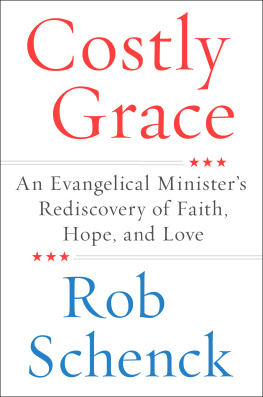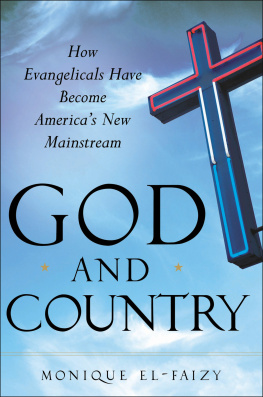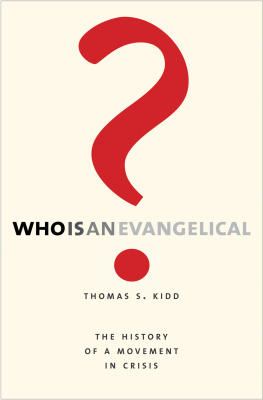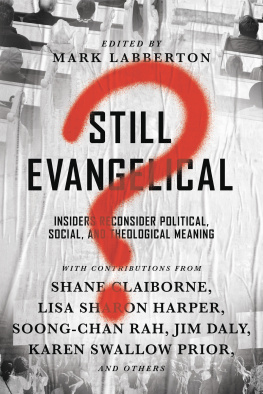Contents
To Cheryl, an extraordinary woman, the best life partner imaginable, without whom this story could never be told. I love you more deeply and fully than I have ever loved another human being.
Cheap grace is the mortal enemy of our Church. Our struggle today is for costly grace.
Dietrich Bonhoeffer, The Cost of Discipleship
English translations of the Bible vary greatly. Evangelicals typically read from a broad cross section of them. In keeping with our long-established and fluid practice of picking a translation based on the language style or word choice related to a particular passage, Ive used a variety of translations in this writing, including the King James Version, New International Version, the English Standard Version, the Revised Standard Version, the New American Standard Version, and others.
This is my story, or, to be more precise, these are my stories. Three of them, each distinct with a trajectory that then changed coursedisrupting my life, thrusting me into the limelight, and complicating the lives of my family members. All of them share an important element: they revolve around my faith in God and my confession of Jesus Christ as Savior and Lord.
I am a born-again Christian and an evangelical minister. Ive been a believer for over forty years and ordained for thirty-five. For the last two decades Ive served as a missionary to top elected and appointed officials in Washington, D.C., including members of Congress, White House personnel, and federal judges. Whenever I meet new people, I often watch split-second deliberations flicker across their faces. Some worry I will try to convert them or preach to them about their own beliefs or the evil in their souls (or their voting histories). Sometimes I see a flash of anger, or an initial openness give way to an impenetrable wall of resistance to anything I might say.
Ive also seen faces light up with warmth and eagerness to hear my message. The nature of their curiosity is sometimes sacred, sometimes the opposite. Some hope I might impart wisdom about a gospel passage, but others beg me to share some terrible insider story about those they perceive to be our enemiesthe liberals and the Democrats, the atheists and the abortionists, the champions of gay rights and transgender bathroomsso that they can add some telling, personal details to what they already know from Fox News, Rush Limbaugh, and, sometimes, from the pulpit during Sunday services. If this is what theyre looking for from me these days, theyll be disappointed by my response.
Mine is not a story of faith discovered and then abandoneda familiar trope. No, Im determined to always be an evangelical, now and until the day I die. The gospel, the evangel, the Good News of Gods generous and permanent love for all of humanity, is at the heart of what I believe. I remain joyfully and with great conviction a believer in this evangel.
Like most Christians, my road to faith was fraught with mixed motives, imperfect desire, and a shallow understanding of the full implications of what immersion in religious life entails. When I fully surrendered to the Lord, my life changed course irrevocablyit will forever remain the most significant day of my life. In my first conversion, I encountered an uncluttered, straightforward, what-you-see-is-what-you-get Jesus. He was the rabbi who taught a compassionate and moral way of living in his Sermon on the Mount. (Blessed are those who hunger and thirst for righteousness, for they shall be satisfied.) This Jesus called people to love God and to love one another. (Blessed are the merciful, for they shall receive mercy.) He welcomed everyone, including the worst of sinners, to join him on the path to paradise. (Blessed are the poor in spirit, for theirs is the kingdom of heaven.) He was patient, forgiving, peaceful, and utterly selfless. And he was even more: a model for a way to live a life of goodness. He was the Son of God, and his resurrection offered me and fellow believers the power to overcome human weakness and proclivity toward sin and replace it with the sincere effort to strive for good. Jesus message moved me emotionally, it filled a deep spiritual void in my heart, and it fed and sustained me intellectually. With it came a surrogate family marked with warmth, love, acceptance, and deep bonds of friendship.
With time, though, I nearly lost track of this first Jesus. I would pray in His name and invoke His teachings publicly and privately, but I became spiritually disoriented and, in many ways, isolated. During my second life, I would listen to and eagerly follow the politicized gospel preached by other, insistent voices from the political arena, talk radio, and an audience craving movement champions. I distorted the words or muffled the voice of Jesus, too often preferring instead the sound of my own. A looming shadow cast by outsized political celebrities clouded my vision so that I could no longer see Jesus as He truly was and is. Instead, I had entered a kind of hall of mirrors with my own reflection and those of other players striding with purpose into the highest reaches of political power. As I joined them, I left behind many of those with whom I began my journey. My world shrank from a vast extended family to one that was small, and insular, and politically radicaleven as we presented ourselves as the champions of conservatism.
For more than thirty years, I espoused and embodied the type of born-again evangelical Christianity that had become almost synonymous with a right-wing and increasingly aggressive Republican Party. What was once a simple, gratifying spiritual community defined by Jesus command to love God and neighbor and to care for the sick, the lonely, the poor, and the forgotten had been nearly lost and certainly compromised by the political posturing and sparring of the last decades. I often played an important role in that gamesmanship and in the destructive transformation of what was once a beautiful thing.
As Saint Paul traveled to Damascus, you could say he had it easy. His journey was interrupted by a blinding light and Jesus spoke directly to him. God was no less determined to reorient my work, but did so incrementally. Slowly, inexorably, through unexpected messengers, I was forced to stop ignoring my arrogance, my ambition, and the often cynical actions of my community. When I began to listen with an open heart to everyoneincluding those I had considered my enemiesI began to understand that I, and my community, had committed a grievous sin: we distorted the true gospel of our Lord for our immediate purposes. But these inchoate feelings found their crucible only when I rediscovered the life and writings of Dietrich Bonhoeffer, a German theologian and evangelical pastor who was executed in a Nazi concentration camp for his opposition to Adolf Hitler. When I reread his work and then undertook a pilgrimage following his life and ministry, I found a posthumous spiritual mentor who could lead me out of my confusion and back on the path toward the Christ I had met decades earlier.
Later, my doctoral work focused on Bonhoeffers theological insights. I found I could not master the German necessary for that level of research, so instead I looked at the evangelical church during the time in which he lived. What I discovered shocked me but also completely reorganized my thinking. I saw in those times a reflection of our own. My thesis was simple: for American evangelicals, the lines between theology and politics have become blurred, eroding the boundaries that distinguish the spiritual from the temporal, generating confusion among many believers about their Christian and political identities, exposing them to the temptation of political idolatry. What had happened to the German Christians was happening to us.





